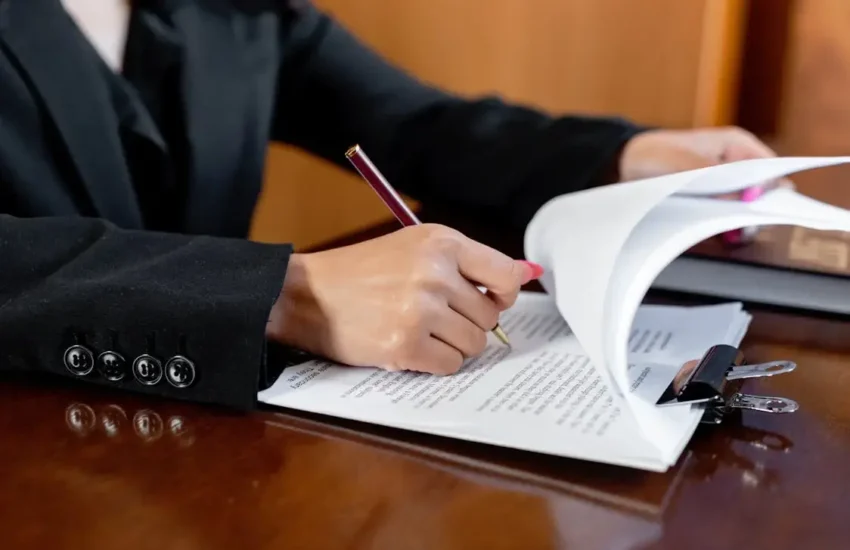Estate Planning: Top Things You Should Do Before You Are Gone For Good
Planning things before you are gone is not a bad idea. It leaves behind a happy family. It eliminates conflicts. You can distribute your wealth according to your wishes. Plus you can participate in charitable ventures. You can also assign guardianship to your kids. Here are the top things you should consider doing before you die.

Itemize Inventory
Create a list of all valuables. These may include vehicles, computers, collectibles, jewelry, lawn equipment, furniture, televisions, power tools, as well as, the home itself. This will ensure that none of your belongings ends up in the wrong hands. Hire a lawyer at https://easlerlaw.com to help you itemize inventory.
Work On Non-Physical Assets
Don’t forget to include non-tangible assets on your checklist. Examples of such items would include life insurance policies, bank accounts, brokerage accounts, IRAs, and other policies.
Make sure that you’ve indicated the location of all physical documents and the contact details of companies holding any of your non-physical possessions.
List Your Debts
Create a list of open credit cards, as well as, other obligations. This may include mortgages and auto loans. Include account numbers, physical locations, and the company’s contact information.
It’s always advisable to run a free credit report every year to identify any credit cards you might have forgotten.
Have A Memberships List
Are you a member of any organization? If so, then you should list them down. Whether it’s a college alumni group or an accreditation association, you need to incorporate them into your membership list. Most of these organizations offer free accidental life insurance benefits for their members.
Review All Your Accounts
Financial accounts and insurance policies that feature designated beneficiaries will be directly transferred to those people upon your death.
So, be sure to review your accounts regularly. Contact your employer for the latest listing of your heirs. Review all your accounts to ensure the beneficiaries are listed exactly as you wish. This is particularly important if you’ve gotten a divorce or remarried.
Update Your Insurance Coverage
Annuities and life insurance policies will be transferred directly to the designated beneficiaries. As such, it’s advisable to contact your life insurance firms to ensure that your heirs are listed correctly.
Consider Designating Heirs
Failing to name your heirs will force the court to distribute your assets according to interstate law. This process is often complex and pricey.
If you hold bank savings or a personal brokerage account, be sure to have it amended to include a TOD (transfer on death) designation. This will allow your heirs to receive their inheritance without going through the complex probate process. Talk to your bank to incorporate this feature into your accounts. But how long for probate? You should learn more about the probate process and how long it usually takes to finish it so you can make a detailed plan.
Choose A Trustworthy Estate Administrator
Your executor will be responsible for administering your will in the event of your death. It’s therefore important to choose an honest individual who’s in a perfect mental state.
Don’t always assume that your partner is the best choice. Your death will make your spouse feel overwhelmed and devastated. As such, they may not be able to make wise decisions. If you foresee such an issue, identify a responsible estate executor or administrator, advises AbogadoMall, which helps you find estate planning attorneys.
Detailed Will
Every adult person should have a will. An estate plan serves as the rulebook for the transfer of your assets. It also names a trustworthy guardian for your minors and designates who should execute your plans. Through an estate plan, you can also leave a portion of your estate to charitable organizations.
You can always draft a will with the help of a professional estate attorney. Don’t forget to sign and date your estate plan in front of two or three witnesses.
Review Documents
Take time to review your will. Revise it at least once a year and after big life events. Some of the most common life-changing events include the birth of a child, marriage, and divorce. Remember, life is constantly changing. As such, your assets and wishes will keep changing as well.
Make Copies
Once you’re done creating your will, make a copy and give it to your estate administrator. If your attorney will be retaining the original copy, then be sure to keep another copy in a safe place within your home. It’s worth noting that while you can make several copies, only the original document can be filed for probate.
You may also want to consider giving the original one to your estate administrator and the second copy to your spouse. Then keep the third copy inside your safe deposit box or another secure place.
Choose A Reliable Financial Advisor
While you might think you’ve exhausted your options, it may be wise to consult with a professional estate attorney. And if you created your plan long ago, then it’s advisable to revisit it. As time progresses, there’ll be major changes in your life.
As such, you need to figure out how long-term care insurance can be of help to you and your loved ones. For instance, it may protect your estate from heavy taxation and lengthy court processes. A professional attorney will enlighten you about the impact of legislation and income tax laws on your bequests.
Consolidate Your Finances
Do you have multiple 401 (k) retirement plans? If that’s the case then you should make plans to consolidate these accounts into a single IRA. This will allow you to make better investment decisions, minimize costs, reduce paperwork, and simplify management.
College Fund Account
Did you know that you can set up college savings account for your kids and grandchildren? Well, now you know. In a college savings plan, savings are non-taxed. Most states also offer substantial tax deductions for those contributing the funds.
The Bottom Line
Planning your life early gives your loved one an easy time when you are gone. It streamlines their lives. They can divide your wealth without any issues. Also, it minimizes unending legal lawsuits. Don’t subject your family to difficulties. Don’t let the state intervene and divide your property. Do it in the will. Draft an estate plan. Thus, plan early. The above are the top things any parent should do before dying.


